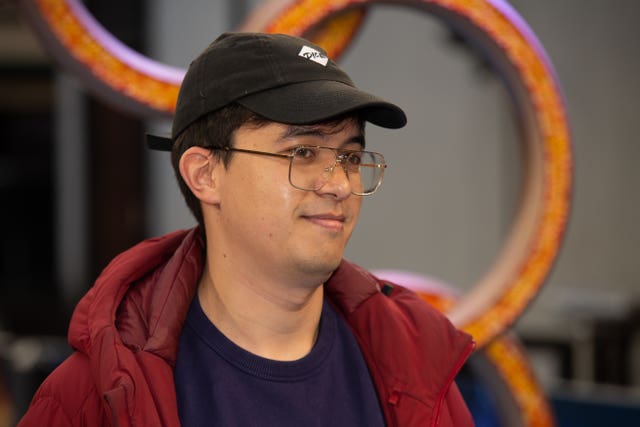Comedian Phil Wang has said his mixed British and Malaysian heritage is “central” to his comedy – and believes he would not have chosen a career in stand-up without having dual-cultures.
The month of September marks East and Southeast Asian (ESEA) Heritage Month, during which the 34-year-old comedian discussed his book Sidesplitter: How To Be From Two Worlds At Once at the ESEA Lit Fest, believed to be the UK’s first ESEA literary festival, on Saturday.
The stand-up comic released his Netflix special, Wang In There, Baby! on September 3, which highlights his observations about the differences between Malaysian and British culture while he opens his show on the subject of reheating leftover rice.
“I opened with a routine about reheating rice and how white people, Western people, are terrified of reheating rice, but Asian people do it all the time,” he told the PA news agency.

Wang, who has mixed Malaysian and English heritage and grew up in Malaysia but moved to the UK in 2006, said he pursued comedy as a way to feel less “alien”.
“When I got into comedy at 17, 18 when I first did stand up, for me it was a way of dealing with my alienness, of owning it, of putting it front and centre in front of everyone, in front of this new country I was trying to assimilate into,” he explained.
“Without that point of difference, if I felt like I fitted in, if I felt like I was just like most other people, I don’t think I would have done that.
“So I think my heritage is central to my being a comedian. I think it is why I am a comedian.”
He said there remains a sense of foreignness about East and Southeast Asians (ESEAs) in comedy, despite his feelings the industry is becoming increasingly diverse.
“From an audience point of view, the preconceptions an audience brings to a comedy show are just the same preconceptions they have in general life, so if they have preconceptions about an ESEA performer, they’ll probably just match up with their preconceptions of them in real life,” Wang said.
“I would think they may expect ESEA performers to be meeker, maybe quieter, and probably a more foreign feeling.
“I feel like a South Asian or black British performer, especially in the cities, doesn’t feel very foreign, but I think an ESEA performer would still feel quite foreign.”
“Black comedians talk so much about seeing Lenny Henry on screen the first time and the South Asian British community talks so much about the Kumars at No 42 and Goodness Gracious Me. There is no equivalent for East Asians in the UK really,” he said.
However, a pan-Asian comedy and improvisation (improv) group based in London called Comediasians and Friends hopes to amplify Asians in comedy and create a space for ESEA performers to showcase their work.
Every month, the group, created in 2019, hosts two-hour long shows consisting of improv performances, guest performers and a segment known as an audience jam which encourages the audience to take part in improv to “champion” Asian talent.
Kelsey Yuhara, 36, a co-founder of the Comediasians, told PA: “I think it was always important for me and for us to be a champion for Asian talent on stage and giving a platform for that.”
Stephen Lee, 40, also a co-founder of the group told PA: “It’s about telling stories from a specific perspective that we can do and are really proud of doing.”

Wang, who has embraced his Malaysian and British cultures, has advised people with dual-heritage: “Don’t let people tell you can’t reheat your rice. It’s good for at least two days in the fridge.”






